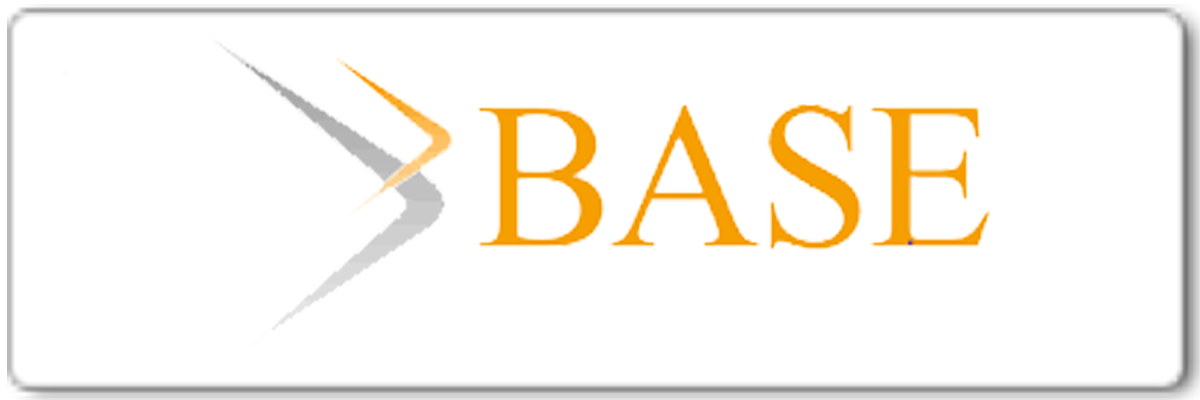The Relationship of Motivation and Self-regulated Learning through Blended Learning in the Covid-19 Era
Abstract
Keywords
Full Text:
PDF (English)References
Code, J., Ralph, R., & Forde, K. (2020). Pandemic designs for the future: perspectives of technology education teachers during COVID-19. Information and Learning Sciences.
Graham, C. R., & Robison, R. (2007). Realizing the transformational potential of blended learning: Comparing cases of transforming blends and enhancing blends in higher education. Blended learning: Research perspectives: 83-110.
Schunk, D. H., Meece, J. R., & Pintrich, P. R. (2012). Motivation in education: Theory, research, and applications. Pearson Higher Ed.
Fitriyani, Y., Fauzi, I., & Sari, M. Z. (2020). Motivasi belajar mahasiswa pada pembelajaran daring selama pandemik covid-19. Jurnal Kependidikan: Jurnal Hasil Penelitian dan Kajian Kepustakaan di Bidang Pendidikan, Pengajaran dan Pembelajaran, 6(2): 165-175.
Özen, S. O. (2017). The effect of motivation on student achievement. In The factors effecting student achievement (pp. 35-56). Springer, Cham.
Broadbent, J., & Poon, W. L. (2015). Self-regulated learning strategies & academic achievement in online higher education learning environments: A systematic review. The Internet and Higher Education, 27: 1-13.
Churiyah, M., Sholikhan, S., Filianti, F., & Sakdiyyah, D. A. (2020). Indonesia education readiness conducting distance learning in Covid-19 pandemic situation. International Journal of Multicultural and Multireligious Understanding, 7(6): 491-507.
Herliana, F., Halim, A., Farhan, A., & Kasli, E. (2020). Identification of Lecturer Difficulties in Implementing of Blended Learning in the Covid-19 era. Asian Journal of Science Education, 2(2): 106-113.
Wong, K. T., Hwang, G. J., Choo Goh, P. S., & Mohd Arrif, S. K. (2020). Effects of blended learning pedagogical practices on students’ motivation and autonomy for the teaching of short stories in upper secondary English. Interactive Learning Environments, 28(4): 512-525.
Isnawati, N., & Samian, S. (2015). Kemandirian belajar ditinjau dari kreativitas belajar dan motivasi belajar mahasiswa. Jurnal pendidikan ilmu sosial, 25(1): 128-144.
Tahar, I. (2006). Hubungan kemandirian belajar dan hasil belajar pada pendidikan jarak jauh. Jurnal Pendidikan Terbuka dan Jarak Jauh, 7(2): 91-101.
Schunk, D. H., Pintrich, P. R., & Meece, J. L. (2012). Motivasi dalam pendidikan: Teori, penelitian, dan aplikasi. Jakarta: PT. Indeks.
Herliana, F., Supriyati, Y., & Astra, I. M. (2015, October). Pengaruh model pembelajaran berbasis blended learning dan motivasi belajar terhadap hasil belajar fisika siswa SMA. In Prosiding Seminar Nasional Fisika (E-Journal) (Vol. 4, pp. SNF2015-II).
Barnard, L., Lan, W. Y., To, Y. M., Paton, V. O., & Lai, S. L. (2009). Measuring self-regulation in online and blended learning environments. The internet and higher education, 12(1): 1-6.
Saifuddin, A. (2020). Penyusunan skala psikologi. Prenada Media.
Sugiyono, D. R. (2006). Statistika untuk penelitian. Bandung: CV. Alfabeta.
Mahmoodi, M. H., Kalantari, B., & Ghaslani, R. (2014). Self-regulated learning (SRL), motivation and language achievement of Iranian EFL learners. Procedia-Social and Behavioral Sciences, 98: 1062-1068.
Wolters, C. A. (2003). Regulation of motivation: Evaluating an underemphasized aspect of self-regulated learning. Educational psychologist, 38(4): 189-205.
Karabenick, S. A., & Berger, J. L. (2013). Help seeking as a self-regulated learning strategy.
Kintu, M. J., Zhu, C., & Kagambe, E. (2017). Blended learning effectiveness: the relationship between student characteristics, design features and outcomes. International Journal of Educational Technology in Higher Education, 14(1): 1-20.
Zimmerman, B. J. (2013). From cognitive modeling to self-regulation: A social cognitive career path. Educational psychologist, 48(3): 135-147.
Yen, C. J., Tu, C. H., Sujo-Montes, L., & Sealander, K. (2016). A Predictor for PLE Management: Impacts of Self-Regulated Online Learning on Student's Learning Skills. Journal of Educational Technology Development & Exchange, 9(1).
Wolters, C. A., & Brady, A. C. (2020). College Students’ Time Management: a Self-Regulated Learning Perspective. Educational Psychology Review: 1-33.
DOI: http://dx.doi.org/10.26737/jipf.v7i1.2137
Refbacks
- There are currently no refbacks.
Copyright (c) 2022 Fitria Herliana, Elisa Elisa, Ahmad Farhan, I Made Astra

This work is licensed under a Creative Commons Attribution-NonCommercial 4.0 International License.
Publisher
Institute of Managing and Publishing of Scientific Journals
STKIP Singkawang
Jl. STKIP, Kelurahan Naram, Kecamatan Singkawang Utara, Kota Singkawang, Kalimantan Barat, Indonesia
Website: http://journal.stkipsingkawang.ac.id/index.php/JIPF
Email: [email protected]
JIPF Indexed by:
Copyright (c) JIPF (Jurnal Ilmu Pendidikan Fisika)
ISSN 2477-8451 (Online) and ISSN 2477-5959 (Print)































